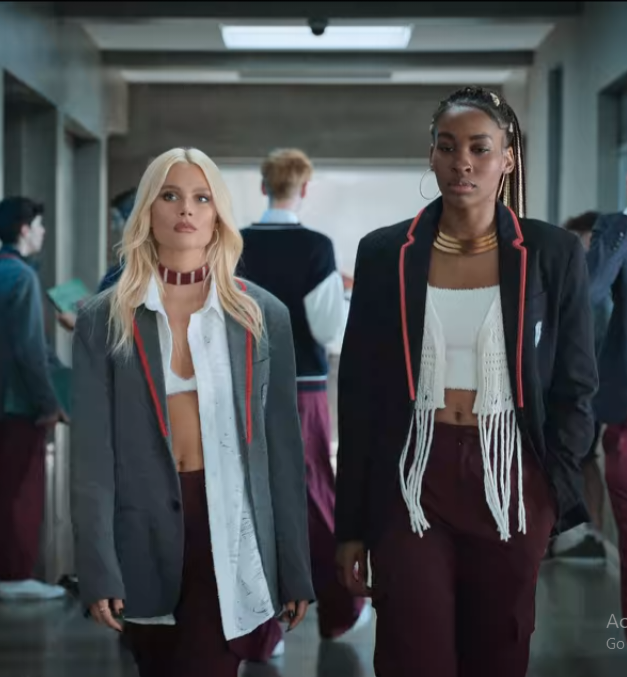Over the past couple of years, it seems as though mainstream TV and film have become increasingly and unnecessarily explicit. Now, I know that by writing this, I might be dismissed by some as prudish or overly conservative. But hear me out…
When I say that mainstream entertainment has gotten too explicit, I’m not talking about films like Anora, where the central story revolves around sex work. After all, what would a movie about sex work look like without any depiction of it? That kind of content makes sense in context.
No, I’m talking about shows like Euphoria, Elite, and Gen V, where at any given moment viewers are exposed to jarring levels of excessive nudity, graphic sex, or scenes that seem designed purely for shock value, rather than meaningful storytelling. By season 7 of Elite, the show had gotten to the point where a high school student went to school wearing just a bra, a fully unbuttoned shirt, a blazer, and a mini skirt, and was not dress-coded for it.
The rise of streaming platforms has given creators more freedom than ever before. Freed from traditional broadcast regulations, writers now enjoy far greater artistic liberty, which, on paper, is a good thing. Less red tape equals more room for creativity. However, that same freedom has also unleashed a wave of content that often feels like it’s pushing boundaries just for the sake of it. Take Gen V, for example, a show that I consider really good; it often includes multiple interrupted anal sex scenes that serve no narrative purpose. They don’t drive the story forward; they’re just…there.
Another well-known example is Euphoria, created by Sam Levinson and set to return for its third season in spring 2026. The show has been widely praised for its stunning visuals and for tackling heavy themes like addiction and trauma. And to be fair, I think the first season was genuinely good. But the second season? Not so much. It was overstuffed with plotlines that never fully developed and padded with a lot of unnecessary nudity.
It’s no secret that Sydney Sweeney, who plays Cassie, asked Sam Levinson to cut out some of her already extensive topless scenes because she didn’t believe they were “necessary.” But, I guess a high level of sexual content wasn’t that surprising as it came from the “sick and twisted mind” of Levinson, who also created The Idol, a show so heavily criticised for its gratuitous sexual content that crew members claimed it was “sexual torture porn.” and had “gone from satire to the thing it was satirising.”
Supporters of this type of storytelling often argue that it’s simply reflecting real life. I won’t pretend that teens or young adults don’t have sex. But the constant, hyper-stylised barrage of graphic scenes raises valid questions. Are these moments included to spark meaningful conversation, or are they simply a platform for creative self-indulgence and questionable fantasies? There’s a clear difference between realism and voyeurism, and lately, too many shows seem to be drifting into the latter.
But it’s not just mature dramas pushing the envelope. Channel 4’s controversial Naked Education, which featured children aged 14 to 16 discussing their bodies while being exposed to naked adults, sparked large outrage and for good reason. Even if the intention was educational, it begs the question: have we lost the ability to recognise when something crosses the line?
I’m not saying that every show needs to be rated PG or that television should shy away from complex topics like sex and identity. But when shock becomes the primary selling point, maybe it’s time to step back and ask ourselves, what are we actually watching?
But then again, if you’re not interested in good storytelling, then none of this may concern you.
Another article you may enjoy: https://thebadgeronline.com/2025/10/a-return-to-dystopia-the-long-walk/


